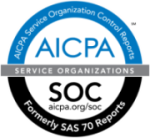
The myriad ways scammers try to steal our information can be dizzying. Simply spreading awareness of the term “phishing” has been a goal of the Security Summit—a partnership between the IRS, state departments of revenue, and members of the tax industry—since it was founded. Learning to recognize all of the different types of scams that are out there might seem like a tall order for many people. Luckily, the Federal Trade Commission just announced a state-specific COVID-19 scam database.
What is the FTC COVID-19 scam database?
The “FTC COVID-19 and Stimulus Reports: Consumer Sentinel Network Reports” database is a graphical representation of up-to-date scam statistics that is powered by the free Tableau Public platform. When you visit the webpage, you’re greeted by a map of the United States that includes a “Reports by type:” key below the FTC logo in the upper left-hand corner. When you click on specific UI elements—the complaints listed in the key or even states on the map—the report displays the relevant information.
For example, if you click on North Carolina, the key displays a bar graph that breaks down the data according the number of fraud, identity theft, do-not-call, and “other” complaints for the state. Clicking on the “fraud” bar displays the types of fraud reports:
- Travel\Vacations (337)
- Online Shopping (284)
- Mobile: Text Messages (53)
- Internet Information Services (48)
- Imposter: Government (40)
The upper right-hand corner of the tool displays a line graph of the reports received by the FTC from January 1 to June 1, and you can select the drop list to view daily, weekly, and monthly reports. There’s even an option for “rolling 2 week average” available to users.
How does the FTC COVID-19 scam database help prevent fraud?
As Security Summit partners have repeatedly explained over the years, knowing the types of scams that are targeting Americans is one of the best ways to combat fraudsters and identity thieves. Using the FTC complaints database alongside other easily accessible scam-awareness resources will help you learn to spot a phishing email before it’s too late.
In the press release announcing the new graphical database, the FTC also provided a link to its “Coronavirus Advice for Consumers” page, which contains even more tips for spotting coronavirus-based scams. Couple that resource with pages like the Security Summit “Tax Security 2.0,” “Don’t Take the Bait,” and “Protect Your Clients; Protect Yourself” campaigns, and you will be much better equipped to protect your office and clients from scammers across the globe.
Sources: “What do COVID-19 scams look like in your state?”; “Security Summit”







